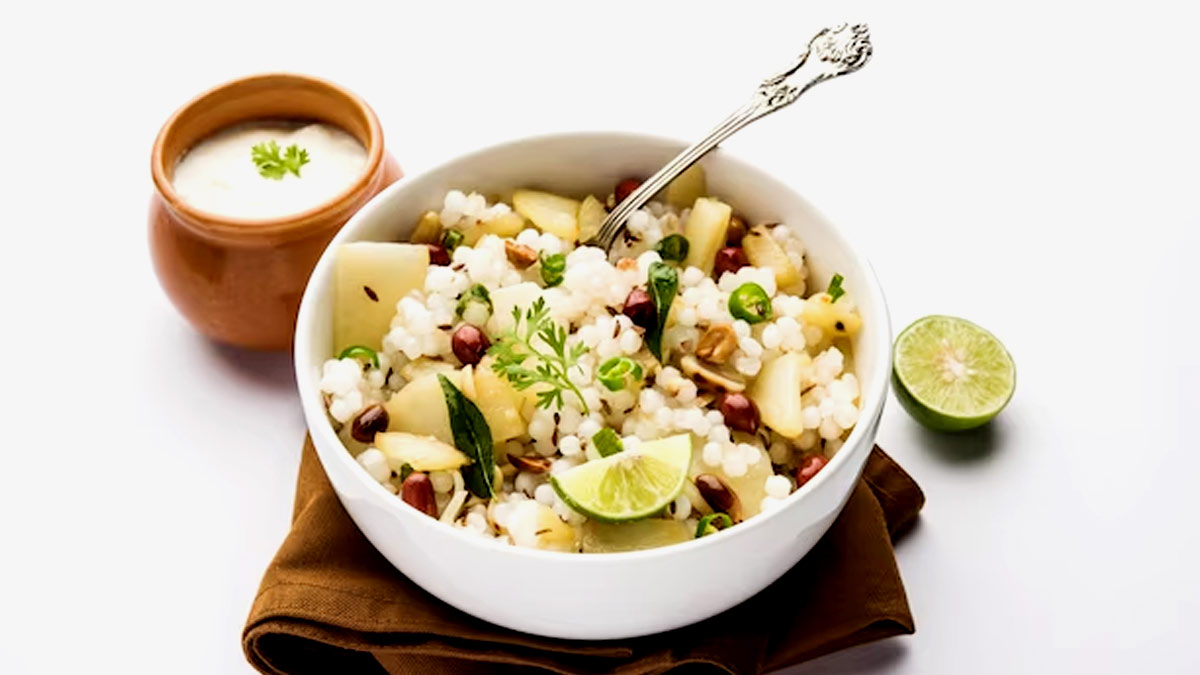
Sabudana, also called tapioca pearls, is one of the major staple foods in India and around the world. It is preferred during fasting periods, as it contains carbohydrates, which in turn provide quick energy to sustain individuals. Additionally, it is easily digestible and considered light on the stomach, making it an ideal choice for fasting practices. Historically, sabudana was introduced in India during the 1860s, by the then ruler of the kingdom of Travancore, Kerala, Ayilyam Thirunal Rama Varma.
However, due to its high carbohydrate content, diabetics are sceptical about whether they should consume it or not. Here’s what Lakshmi, Senior Dietician, Kamineni Hospitals, Hyderabad, has to say.
Also Read: All Set For Barbenheimer? Make Sure You Don't Overeat Popcorns: Side Effects To Note
Sabudana For Fasting

“Sabudana is a fasting staple because of its easy digestion, and the ability to provide energy to individuals,” said Lakshmi, adding that it is a quick prep that makes things convenient for most people.
As discussed, sabudana is a good source of carbohydrates, and also contains some essential nutrients like calcium and iron. According to the American Heart Association (AHA), simple carbohydrates are digested quickly and send immediate bursts of glucose (energy) into the bloodstream. However, sabudana is high in calories because it is basically made of starch. The starches are complex carbs that contain multiple connected glucose molecules, which are used by the body to produce energy. This food product is not very nutritious but is carb-dense. As a result, it is essential to consume sabudana as part of a well-balanced diet that includes other nutritious foods.
Sabudana is a good food choice for people who are intolerant towards gluten. This includes people with gluten sensitivity or celiac disease. Rich in potassium, sabudana also helps in maintaining proper muscle and nerve function in the body. short-term potassium supplements are said to have a blood pressure lowering effect, according to a study published in AHA Journals.
Some people may have allergies or intolerances to tapioca, so it's essential to consider individual dietary needs and consult a healthcare professional if necessary.
Also Read: 4 Delicious Protein Powder Recipes To Spice Up Your Fitness Routine
Can Diabetics Eat Sabudana?

Despite its benefits, it's important to consume sabudana in moderation and as part of a balanced diet, as excessive consumption of any food can lead to unwanted effects.
“For people with diabetes, consuming sabudana should be done with caution,” says Lakshmi, adding, “It consists mainly of starch, and when it is consumed, it can rapidly increase blood sugar levels. This is particularly concerning for individuals with diabetes who need to manage their blood sugar levels carefully to avoid complications.”
According to her, moderation is key when consuming sabudana. “Control portion sizes to manage blood sugar levels. Combine it with protein, fibre, and healthy fats for balanced meals to slow down carb absorption. Avoid adding sugar or high-sugar ingredients. Regularly monitor blood sugar levels before and after eating sabudana. Consulting a dietitian is vital to create a personalised meal plan that accommodates dietary preferences and health needs, including occasional sabudana consumption,” she concludes.







